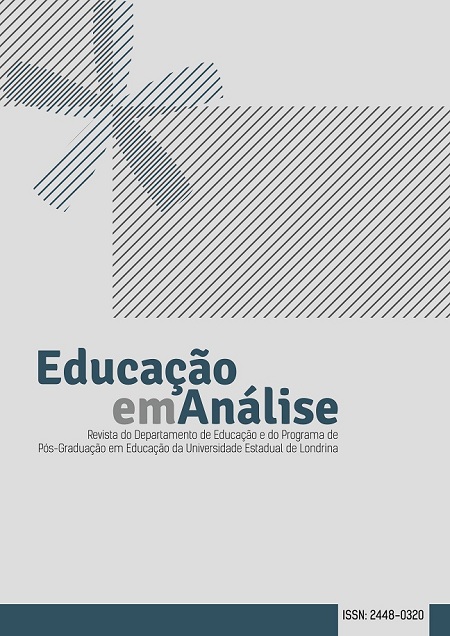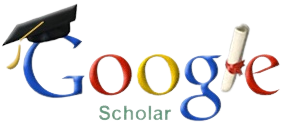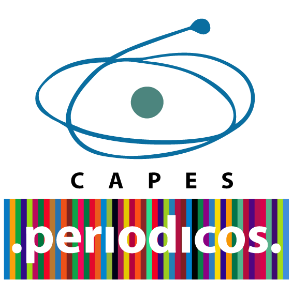John Dewey'S thought, work and legacy: from his philosophical pedagogical bases to problem based learning
DOI:
https://doi.org/10.5433/1984-7939.2020v5n2p257Keywords:
Dewey, Active school, New Progressive School, PBL, Experiential learningAbstract
The North American thinker and philosopher John Dewey, one of the main New School theorists, gives special relevance to Pedagogy as a philosophical task, considering it key to fix the Philosophy lag in relation to the modern world and (re) think it based on its usefulness for life. Considering experience as the key concept of his philosophical system, Dewey rejects all types of dualism and highlights the importance of science as improvement, and the last stage of knowledge. This study explores Dewey's main concepts and the contributions of other authors who have debated his work and/or have been influenced by his writingst. Besides, we focus on the existing connections between the legacy of the educator through his experience in the so-called 'School-Laboratory' and derived pedagogical: experiential learning and Problem Based Learning (PBL). In both cases, these theoretical framework promote critical thinking and the students' interests, by adapting to their most direct knowledge and incorporating the scientific method. This conception goes beyond the figure of the omniscient teacher, replacing his former authoritarian role for that of an educational guide that deliberately regulates the environment.
Downloads
References
AUSUBEL, D. Psicología educativa: un punto de vista cognoscitivo. México: Ed. Trillas, 1976.
BARROWS, H. S. A taxonomy of problem-based learning methods. Medical Education, [London], v. 20, n. 6, p. 481-486, 1986. Disponible en: https://onlinelibrary.wiley.com/doi/abs/10.1111/j.1365-2923.1986.tb01386.x Consultado: 4 abr. 2020.
BUILES JARAMILLO, J. El abordaje de la educación experiencial. Colombia: Universidad de la Sabana, 2002.
CASTILLO PARRA, S. Aprendizaje basado en problemas. Chile: Facultad de Medicina, 2014.
CASTRO ALVAREZ, P.; GONZALEZ PEREZ, G.; CASAR ESPINO, L. Metodología para la organización de los cursos de inglés con fines específicos basados en el problema. Revista Interacional de Lenguas Extranjeras, Tarragona, n. 4, p. 31-54, 2015.
CEVALLOS COLUMBUS, L.; ALEGRÍA, A. Modelo de capacitación docente basado en el aprendizaje experiencial para fortalecer las competencias en la enseñanza del idioma inglés. Revista Ciencia y Tecnología, Trujillo, v. 8, n. 22, p. 263 - 277, 2012.
DEWEY, J. Democracia y educación: una introducción a la filosofía de la educación. 3. ed. Madrid: Ediciones Morata, 1916.
GONZÁLEZ-MONTEAGUDO, J. John Dewey y la pedagogía progresista. En: TRILLA, J. El legado pedagógico del siglo XX para el siglo XXI. Barcelona: Grao, 2001., p. 15-39.
GUTIERREZ FERNANDEZ, M.; ROMERO CUADRADO, M.; SOLÓRZONO GARCÍA, M. El aprendizaje experiencial como metodología docente: aplicación del método Macbeth. Argos, Caracas, v. 28, n. 54, p. 127-158, 2011. Disponible en: http://ve.scielo.org/scielo.php?script=sci_arttext&pid=S0254- 16372011000100006&lng=es&nrm=iso Consultado: 4 abr. 2020.
HARRIS, F. Las filosofías de la educación popular de Dewey y Freire en el contexto capitalista. Encounters in Theory and History of Education, Ontario, v. 18, p. 100-118, 2017.
KOLB, D. Experiential learning: experience as the source of learning and development. New Jersey: Englewood Cliffs Prentice Hall, 1984.
MALDONADO SANCHEZ, F. Aprendizaje basado en problemas. Actas Congreso Internacional de Geografía, San Juan, p. 155-158, 2016.
MARTÍN GOMEZ, V. Aprendizaje basado en problemas: una alternativa para los procesos de enseñanza y aprendizaje. Mexico: Universidad de Guadalajara, 2010.
MORALES BUENO, P.; FITZGERALD, L. Aprendizaje basado en problemas. Theoria, Chile, v. 13, n. 1, p. 145-157, 2004.
MORRAL FERNÁNDEZ, A.; BOU, T. Aprendizaje basado en problemas. Revista de Fisioterapia, Murcia, n. 1, p. 26-35, 2002.
RESTREPO GOMEZ, B. Aprendizaje basado en problemas: ABP: una innovación didáctica para la enseñanza universitaria. Educación y Educadores, Colombia, v. 8, p. 9-19, 2005.
RODRIGUEZ, L. John Dewey y sus aportaciones a la educación. Revista Acta, San Luis, v. 5, p. 1-24, 2015. Disponible: https://www.universidadabierta.edu.mx/ActaEducativa/articulos/28.pdf Consultado: 20 nov. 2018.
SOUZA, R. La filosofía de John Dewey y la epistemología pragmatista. Revista Redescricoes, Rio de Janeiro, v. 2, n. 1, p. 1-13, 2010.
SPADAFORA, G. Democracy and education by John Dewey: rebuilding education to rebuilddemocracy. Studium Educationis, v. 18, n. 1, p. 37-52, 2017.
VARGAS BERRA, K.; GUTIERREZ, B. Aprendizaje basado en problemas en clases de idiomas. Curriculum BAT, 2015. Disponible en: http://posgradoeducacionuatx.org/pdf2015/B082.pdf Fecha de acceso: 13 feb. 2020
ZULUAGA GARCÉS, O.; MOLINA OSORIO, A.; VELÁSQUEZ ACEVEDO, L.; OSORIO VEGA, D. B. La pedagogía de John Dewey. Revista Educación y Pedagogía, Medellín, v. 5, n. 10/11, p. 20-30, 1994.
Downloads
Published
How to Cite
Issue
Section
License
Copyright (c) 2020 Educação em Análise

This work is licensed under a Creative Commons Attribution 4.0 International License.
Os artigos publicados na Revista Educação em Análise estão sob a Licença Creative Commons Atribuição 4.0 Internacional, garantindo Acesso Aberto. Deste modo, os autores mantêm os direitos autorais de seus trabalhos e, em caso de republicação, solicita-se que indiquem a primeira publicação nesta revista. Essa licença permite que qualquer pessoa leia, baixe, copie e compartilhe o conteúdo, desde que a devida citação seja feita. Além disso, autoriza a redistribuição, adaptação e criação de obras derivadas em qualquer formato ou meio, incluindo uso comercial, desde que a atribuição à revista seja mantida.
A revista se reserva o direito de efetuar, nos originais, alterações de ordem normativa, ortográfica e gramatical, com vistas a manter o padrão culto da língua e a credibilidade do veículo. Respeitará, no entanto, o estilo de escrever dos autores. Alterações, correções ou sugestões de ordem conceitual serão encaminhadas aos autores, quando necessário.
As opiniões emitidas pelos autores dos artigos são de sua exclusiva responsabilidade.
























